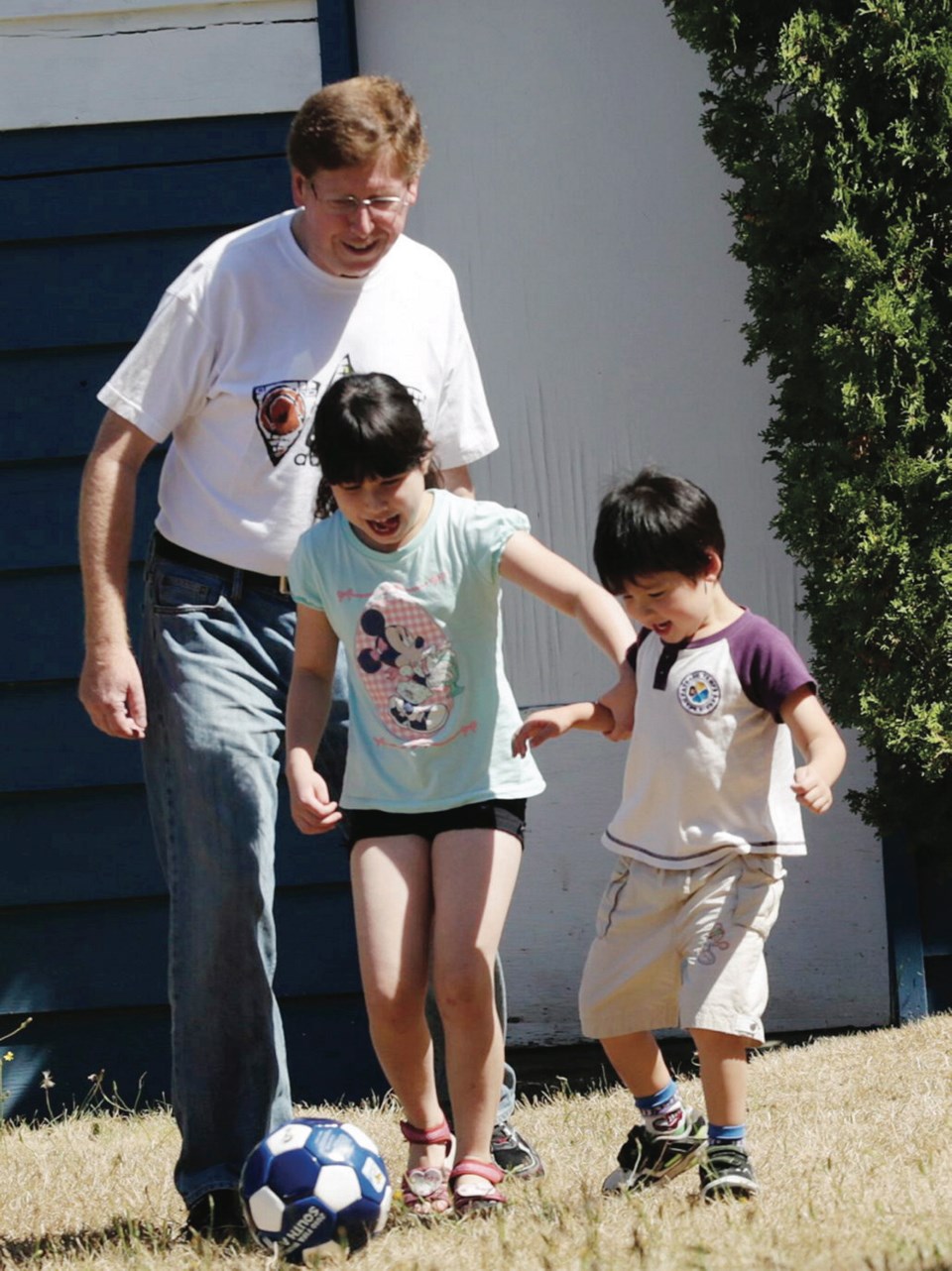David and Noriko Prezeau have always been active with their kids, but researchers at the University of Victoria will now be watching them.
David, 58, said he and Noriko, 47, walk, swim and play with their children, Angela, 8, and Bryan, 4. But since David retired from the provincial civil service three years ago, he has been gaining weight and “getting a little doughy.”
So when Angela came home from school with a notice saying researchers at UVic were looking for volunteer families for a study on fitness, health and physical activity, he thought it was a good idea
“We always believed in physical fitness, but we just didn’t seem to set out the time for it,” Prezeau said. “Now there is somebody watching and actually monitoring us to the point of even measuring us. It sort of gives us a reason to stick with it.”
Prezeau and his family have signed on as subjects with the UVic behavioural medicine lab to examine family activity, how best to promote and maintain it, and what the results can show.
Chris Yao, a master’s student and research co-ordinator in the behavioural medicine lab, said the study aims to examine ways families engage in physical activities with their children and how they can best sustain active habits.
Yao said the study will compare families who are given educational sessions on the benefits of physical activity with those who learn how to use behavioural cues and signals to ensure they remain active. Cues for self-regulation include habits such as leaving gym clothes for parents and kids by the front door on exercise days.
Yao said self-regulation involves planning and setting goals.
“If you schedule days when you are going to be active as a family, that’s a little bit more effective than just trying to be active as a family because you will all enjoy it,” Yao said.
“This study will look over time to see if this holds up.”
The researchers will delve into specifics such as:
• When does a family engage in activity together?
• What do they plan, and do they plan alternatives for conditions such as bad weather?
• How does the family make decisions about their activities together?
Families in the study are measured and weighed. Fitness levels are noted with strength and cardiovascular testing. Levels will be measured again at intervals to see which families are progressing best.
Subject families are also required to keep journals.
For Prezeau, being tested and measured is already providing an incentive.
“At the start, they didn’t tell us any details of where we fell on the scale of the fitness levels,” he said. “But I personally want to see some results.”
The UVic behavioral medicine lab hopes to make the study a large-scale one with about 120 families. So far, they have only about 12.
If you have children ages six to 12 and are interested in taking part, call the lab at 250-472-5288 or email bml@uvic.ca.



